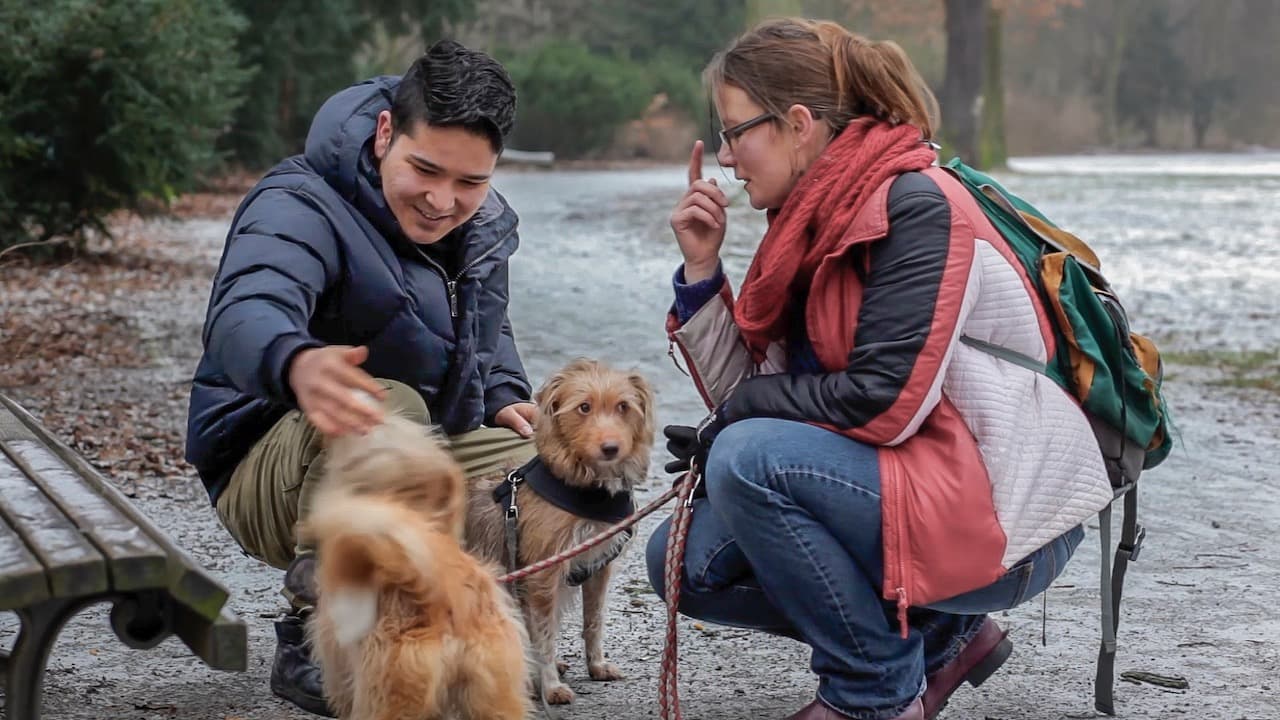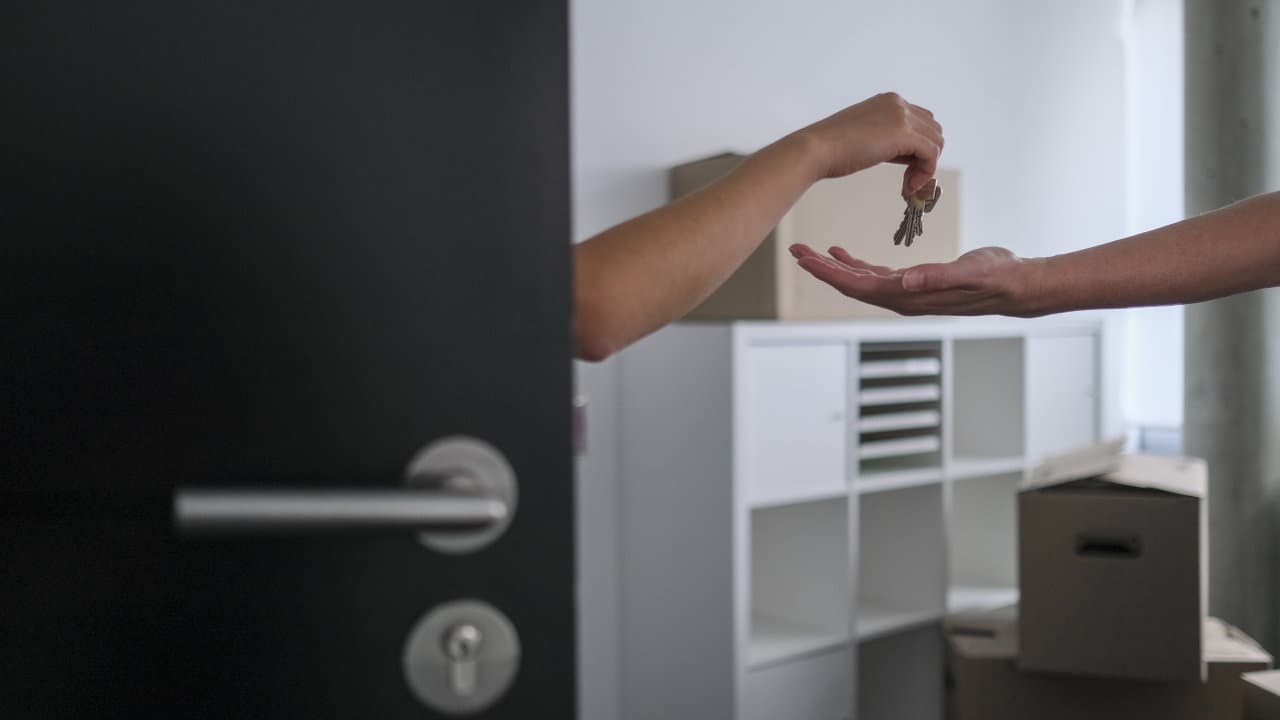Pets

What regulations apply to pets and pet owners?
Dogs, cats, budgerigars, fish, mice... - there are countless animals people like to keep as pets. A pet can bring much joy, but also requires care and responsibility. In this chapter, you can learn about the most important regulations and general issues concerning pets.
What do I need to know?
Can I keep a pet in my flat?
In principle, you must follow the regulations specified in your rental contract. In many rental agreements, keeping some animals is prohibited. You must comply if there is a specific pet ban in your rental agreement.
Which rules do I have to consider as a pet owner?
Dog owners, in particular, must observe various rules regarding mandatory leash, muzzle, dog tax (Hundsteuer) and dog liability insurance (Hundshaftpflichtversicherung). These rules differ from state to state and (partially) from region to region. Your city or local administration can tell you more. You can also find necessary information about the regulation in your state at hunde.de.
There may also be specific regulations for some exotic animals, such as spiders or snakes, in your place of residence. In some cities, these animals are prohibited or allowed only with proper authorisation. Your city or local administration can provide you with more information in this regard.
Where can I get a pet?
There are several ways to obtain a pet. You can buy smaller animals such as birds, mice, snakes, or fish in a pet shop or at hardware stores with an animal department. You can also adopt these small animals, as well as larger ones like cats and dogs, from a shelter. Abandoned pets and animals which have been found are housed in animal shelters. Since most shelters are overcrowded and under budget, obtaining a pet from there is a triple win, not only for the shelter but also for you and the pet you choose: you pay a small amount of money, and the animal finds a forever home. The shelter animals are already vaccinated and de-wormed. Plus, you can visit the shelter a few times and get to know the animal before taking it home. After you find an animal you like, the shelter staff will ask you about your living condition and prior experiences with pets to ensure that you can take care of the animal.
It is also possible to buy an animal or get one for free from private individuals. For instance, many people give away the offspring of their pets. You can find such offers, for example, in the Ad section of regional newspapers. Be careful who you buy the animal from and pay attention to the general conditions of the animal. Watch out for shady offers and animal traders, and pay only after seeing the animal.
You can also buy your pet from a breeder. But beware - some shady breeders keep animals in dismal conditions. Take a close look at the breeder and the animal. You can find a breeder in your area on the internet if you google the name of your town and the name of the pet you want. When you deal with a legitimate breeder, the animals are well, and you will be handed a purchase contract and a pet passport along with the animal.
Do I need liability insurance ("Haftpflichtversicherung") for my pet?
In principle, you are responsible for any damage caused by your pet. If your dog injures someone or breaks something, you have to pay for it. In such cases, liability insurance covers the costs. You can include some animals, such as cats, in your regular liability insurance. For other animals, e.g. dogs, you need to obtain dog liability insurance. You can search for a suitable dog liability insurance online, for instance, on tarifcheck.de.
In some regions, it is mandatory for all dog owners or those who have certain dog breeds to obtain dog liability insurance. Your city or local administration can provide you with details.
How can I find my missing pet?
If your pet ran away (or flew away), you can ask at shelters nearby whether it has been dropped off there. You can find animal shelters in your area on the website of the Animal Welfare Association. You can also hang posters in the neighbourhood with a photo of your pet and your phone number so that your neighbours know that your pet is missing and can contact you if they see or find it.
In addition, It is worthwhile to have animals which go outside alone chipped. A chip is implanted under the skin by the veterinarian and carries a number, which makes identification easier. After chipping your pet, you can register your pet on the free TASSO database. Then, in case your pet runs away and ends up at a shelter or vet's office, your contact information will be pulled out, and you will be contacted. TASSO database can also help you to locate your pet.
You can also attach a tag with your contact details, particularly on the dog collar. Therefore, the person who finds your dog can contact you directly. Keep in mind that collars are not recommended for other animals due to the risk of injury.
I cannot take care of my pet anymore. What can I do?
It can be pretty challenging for pets like cats and dogs to be abandoned by their owners, particularly if they have been living together for a long time. But sometimes you have no other choice but to hand over your pet, for instance, because you can no longer take care of it due to a disease or allergy.
If you cannot accommodate the animal in your circle of friends, you can hand it over to a shelter in your community. Abandoned pets and animals which have been found are housed in animal shelters. Call a shelter near you and ask if there is room for your pet. Bring all documents and data about your pet at the time of delivery. Please note that an animal may only be handed over by its owner or with a power of attorney from the owner. The next shelter can be found on the website of the Animal Welfare Association.
I found a stray animal. What can I do?
If you find an abandoned or stray pet, you must hand it over to either the police or a shelter. Animal shelters are collection centres for stray or abandoned pets. There, the animals are fed and taken care of until the owner shows up or another person adopts the animal.
Please note: You cannot just keep a pet that you have found. You always have to hand it over to the police or a shelter. If the owner does not pick it up after six months, then you may take the animal home with you.
I found an injured animal. What can I do?
If you find an injured animal, contact the police at 110 (in German) and ask for help. In the case of Injured pets or small wild animals, you can also take them directly to the nearest vet or veterinary clinic. You can also contact the nature conservation association or "Naturschutzbund" in your state and ask the staff for advice. You can find the contact information of their office in your area at nabu.de. In principle, their employees only speak German. Important: You are not allowed, however, to transport large wild animals such as deer or wild boars yourself - in such cases, you need to inform the police or the local hunting association.
The veterinary service costs are usually covered by the animal's owner or the municipality in which the animal was found. In addition, many veterinarians treat animals which have been found injured free of charge. Only in rare cases do you, i.e. the one who found the animal, have to pay for treatments. You can ask the vet's office or clinic directly about specific regulations in your district.
Please note: If you harm an animal in an accident, you are legally obliged to look after the injured animal and call the police.
How can I bring my pet to Germany?
You need to observe several regulations to bring your pet to Germany. The laws depend on the animal's country of origin.
If your pet comes from an EU country or a country listed in Part 1 of the list of sites and third countries per Article 13 of Regulation No 576/2013, the following conditions must be met:
- The animal must be at least 15 weeks old.
- The animal must have a microchip and an EU pet passport.
- The animal must have been vaccinated against rabies at least 21 days before entry.
- A person must accompany the animal.
If your pet comes from another country, more requirements must be met. For some countries, however, a simplified entry procedure applies. You can find the names of these countries in Part 2 of the list of sites and third countries per Article 13 of Regulation No 576/2013. For the simplified entry procedure, the following conditions must be met:
- The animal must be at least 15 weeks old.
- The animal must have a microchip, a vaccination certificate and an animal health certificate.
- The animal must have been vaccinated against rabies at least 21 days before entry.
- The animal must enter the EU directly.
- A person must accompany the animal.
- The accompanying person must declare in writing that the owner will not change.
If your pet's home country is not on the above list, the simplified entry procedure does not apply. As a result, the following additional prerequisites must be fulfilled:
- The animal must be at least seven months old.
- An official veterinarian and an accredited laboratory must conduct a blood test for anti-rabies antibodies at least three months before entry. You can find a list of accredited laboratories, ec.europa.eu.
- The animal must be registered with customs authorities.
- The animal may only enter through certain airports or seaports. On the website of the Federal Ministry of Food and Agriculture, you will find a list of the authorised entry points.
Please note: Each person may bring a maximum of 5 animals at a time to Germany.
Where can I find a vet or veterinary clinic?
You can easily find a veterinarian or veterinary clinic nearby in the Veterinary Online Directory. Veterinary clinics are usually open day and night.
Important
Abandoning or mistreating an animal is against the law and is punished with a fine of up to €25,000.
Similar topics
Additional links
Animals' Shelter
Find an animals' shelter nearby.
Register Your Pet
You can register your pet at TASSO free of charge. In case it goes missing, TASSO helps you find your pet.
Our community in the forum
Quickly find answers to any question. Benefit from the experience of your community and exchange ideas.
Support on site
Are you looking for counseling centers, meeting points, and other services? Use our search engine.








